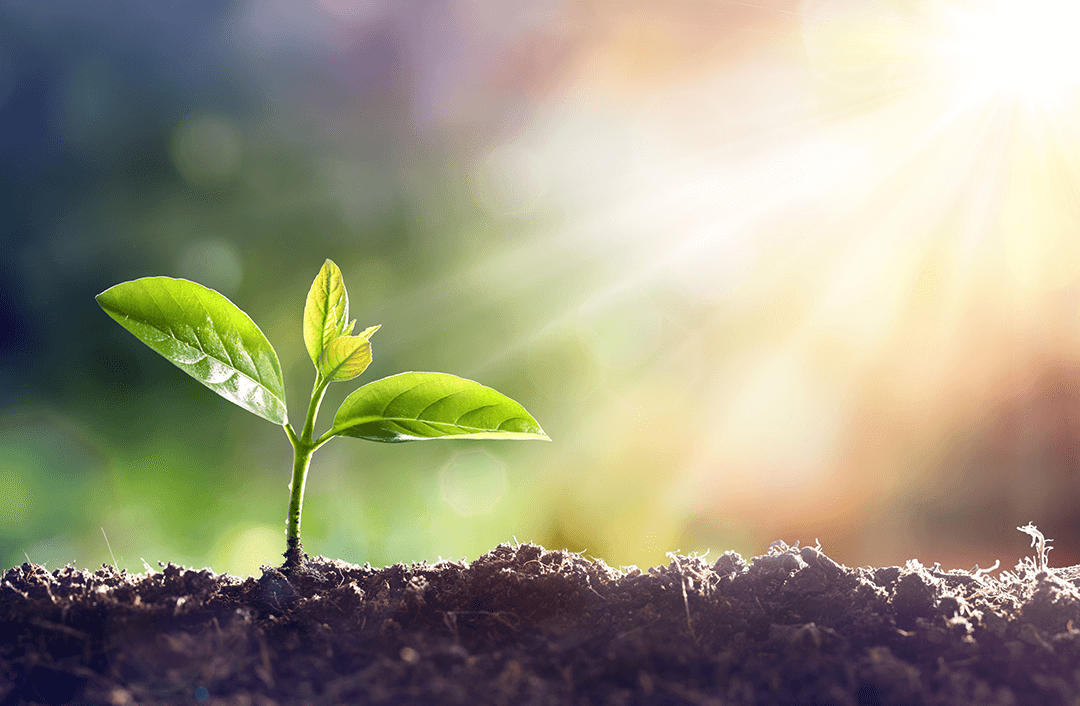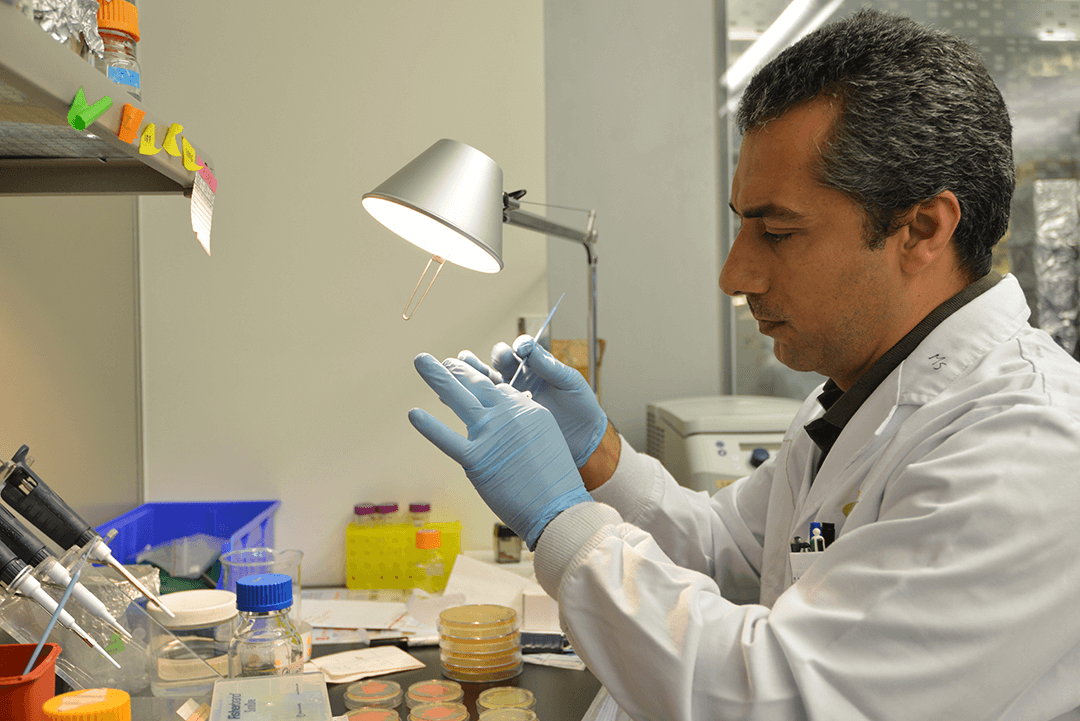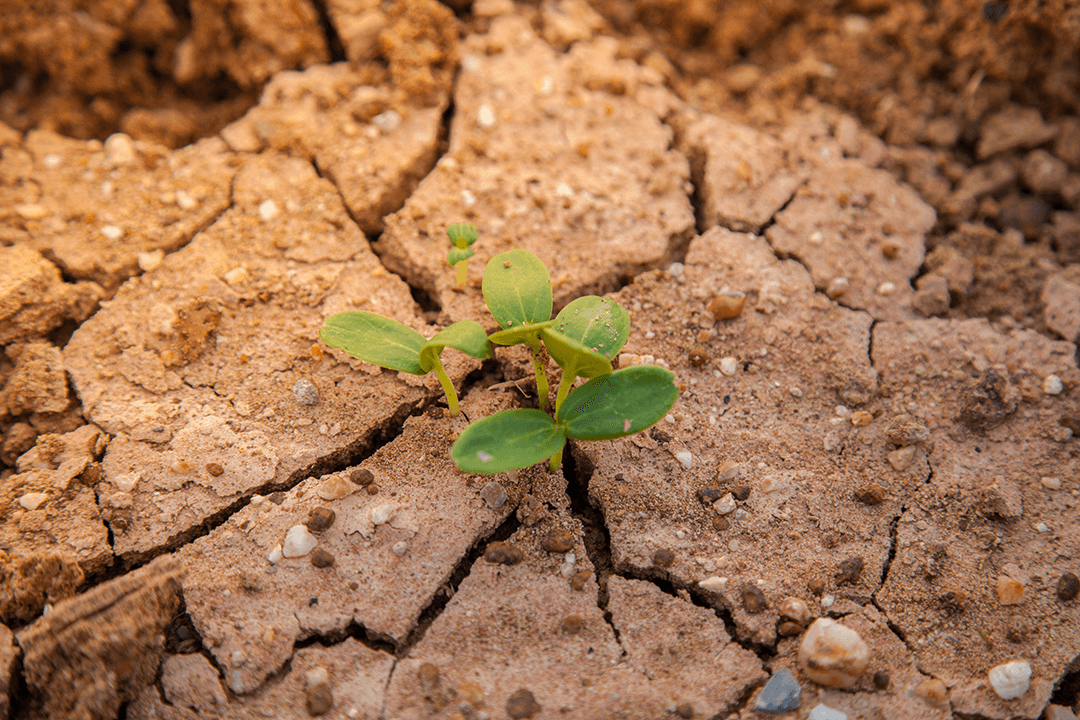In pursuit of global food security

KAUST research scientist Dr. Maged Saad and his colleagues in the University's Desert Agriculture Initiative study how to provide global food security for the future. Image courtesy of Shutterstock.
By Abdullah Alhamdan, KAUST News
Dr. Maged Saad, a research scientist in the KAUST Desert Agriculture Initiative, part of the University's Biological and Environmental Science and Engineering division, focuses his work on developing unconventional ways to provide global food security.

KAUST research scientist Dr. Maged Saad is pictured here at work in the KAUST lab. Image courtesy of Maged Saad.
Rhizospheres and their effect on plants
After obtaining his bachelor's and master's degrees in biochemistry from Ain Shams University in Egypt, Saad received a Ph.D. in molecular biology from the University of Geneva in Switzerland. He then carried out postdoctoral studies in Germany, the U.K., France and Switzerland, and chose to come to KAUST based on the ability to apply his "scientific and practical research in the field of agriculture [at the University]," he said.

KAUST researchers like Dr. Maged Saad hope their work on desert plants will increase agricultural production through the use of selected strains of bacteria. Image courtesy of Shutterstock.
Solutions and research
Over the last four years, Hirt collected in a research effort called the
DARWIN21 project bacterial strains from the roots of various desert plants in the Arabian Peninsula and neighboring countries in the Middle East. The research team now possesses the largest specialized bacterial library from desert plants of more than 2,500 different strains. This library may provide solutions to improve the growth and yield of plants grown under desert agriculture conditions and also promises to lead to the identification of new antibiotics and metabolic pathways of industrial interest. The team identified, categorized and tested bacterial strains towards helping plants withstand stressful laboratory conditions in order to select the best for these efforts.
"We have seen some strains achieve remarkable success in increasing salt tolerance and crop productivity," Saad said.
Increasing agricultural production using selected strains of bacteria will also affect local products in a manner consistent with Saudi Arabia's Vision 2030 goals.
Converting technology
To convert their technology into a product, "protecting intellectual property rights for using these strains, preparing a prototype, testing the prototype on the ground by farmers in Saudi Arabia, and finally marketing the product by establishing a startup" must be done, Saad explained.

